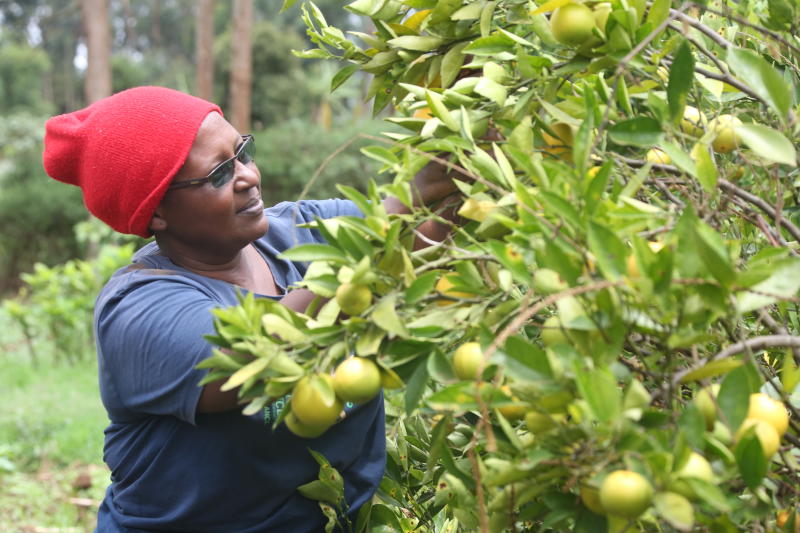Phoebe Gachemi on her farm at Giakaibei village in Mathira, Nyeri. [Kibata Kihu, Standard]
×
The Standard e-Paper
Smart Minds Choose Us

For the last 20 years, Ms Phoebe Gachemi has been a farmer, working her two-acre piece of land in Giakaibei village in Mathira Constituency of Nyeri County.
Her farm is an array of horticultural produce from fruits such as seedless oranges and tree tomatoes to household vegetables such as cabbages, sukuma wiki, potatoes, beans and tomatoes.